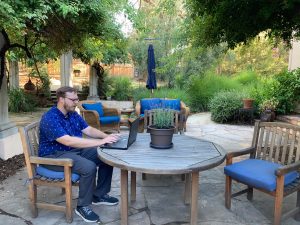What is the True Meaning of Education?


The true meaning of education is not defined by grades, memory tests, or topic understanding but rather by how you apply what you learn. This is the most critical part of education and should be considered a measure of intelligence. However, many schools do not value the ability to apply knowledge to new situations. Therefore, not being innovative can be just as damaging as a lack of knowledge.
Formal education
Formal education, also known as formal schooling, is the process of imparting knowledge to people in a school-like environment. It is essential to understand that formal education differs from informal education aimed at building attitudes, skills, and vision. Instead, education aims to foster good qualities in a person and mold them toward a particular role in society. While education in many cultures is not formal, it is essential to human development. It improves a person’s aspirations, raises his awareness about the environment, and provides him with the necessary skills to succeed in life.
Formal education is a systematic process of learning that leads to different degrees and certificates. It starts at a young age and continues through higher education and technical training. It involves a prescribed curriculum, teachers with special training and license, and strict discipline. It also involves exams and a structured timetable for completing the education.
Non-formal education
While formal education is related to schools and universities, non-formal education can take place anywhere, anytime, and in various ways. For example, it can involve interactions with family, friends, and co-workers, as well as organizing daily educational events that people take part in.
Non-formal education has been a significant feature of debates in southern countries for the past three decades, highlighting the value of education outside the formal educational system. It has also come in and out of vogue, with Fordham (1993) linking the emergence of non-formal education to political change.
Non-formal education can provide a higher quality of education than formal schooling and can help improve the lives of people with disabilities. Many non-formal education programs incorporate the input of individuals with disabilities and include them in decision-making and program planning. They can also respond to the needs of a specific community.
Informal education
Informal education is a natural process of learning that takes place outside of a formal curriculum. It works through the exploration of experience, conversation, and the sharing of ideas. As such, it can take place in any setting. Its goals are similar to formal education’s, often focusing on building healthy habits, strong family relationships, and happy communities. In the words of John Dewey, informal education is educating for the common good.
Informal educators may tutor students individually, work part-time, or run classes and teach certain subjects. Their methods and emphasis vary according to the nature of the subject they teach.
Kinesthetic learning
When you study, try to keep your body active. Stand up and do some jumping jacks, for example. If you have difficulty sitting still during lectures, try to pace the floor or tap your toes as you study. This helps you concentrate and memorize the information more effectively.
Kinesthetic learners can visualize complex concepts and vocabulary and even create a storyboard or video to explain them. They also have excellent motor memory and like discussions in groups. They can also use fidget toys to keep their attention. They also like to pace the room or write on a surface or in the air. This allows them to visualize the information as they read it.
A hands-on approach to education helps students develop the skills they need to work independently. Hands-on training enables students to experience a variety of situations and allows them to make observations about their actions. Such activities also teach the students to work in teams and improve their communication skills.
